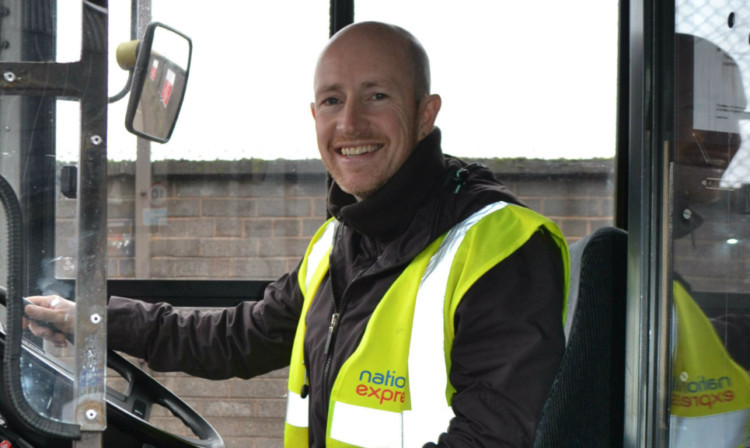National Express Dundee, which recently suffered industrial action over a staffing shortage, is putting a dozen new drivers on the road.
Eight of the bus company’s new recruits have passed their test to receive their PCV licence.
They underwent a series of exercises in driving, road theory, health and safety, incident awareness and customer service, delivered by experienced training staff.
Former lorry driver Gavin Lyon, 44, said the process has been tough but well worth it.
“I was nervous when I first went out but the nerves subsided once I got the hang of it,” the father-of-two said.
“The training staff are really good. They put you at ease. The test is tough but you’ve just got to take your time and remember the basics.
“When you’re out on the road in service there’s a million and one things to think about passengers, the ticket machine, timings, the route but you quickly get used to it.
“It’s not a straightforward job but I went for it because I was looking for something secure, with a bit of interaction with the public.
“I’m doing route training at the moment with a mentor but I’m looking forward to getting out on my own.
“I would recommend it to other people. There’s lots to learn but you just need to be prepared to ask questions and work hard until you get it right.”
Managing director Phil Smith who himself recently proved just how testing the job can be said: “I want to welcome our newest drivers to National Express Dundee and I hope they will enjoy working for the business.
“For people who are willing to work hard and deliver a high standard of customer service, this business can offer a rewarding job with good career prospects.
“I’m sure we’ll see many of these new drivers receive long service awards in years to come.”
Hundreds of Dundee buses had to be cancelled over the festive season because of a shortage of drivers.
Staff complained they were being made to work excessive overtime to cover for the shortage and they refused to turn out for extra work on Mondays and Fridays.
Management admitted there was a shortage caused by departures and illness absence but said rotas had been compiled to spread the extra work and denied that the overtime was excessive.
The dispute was later settled.
